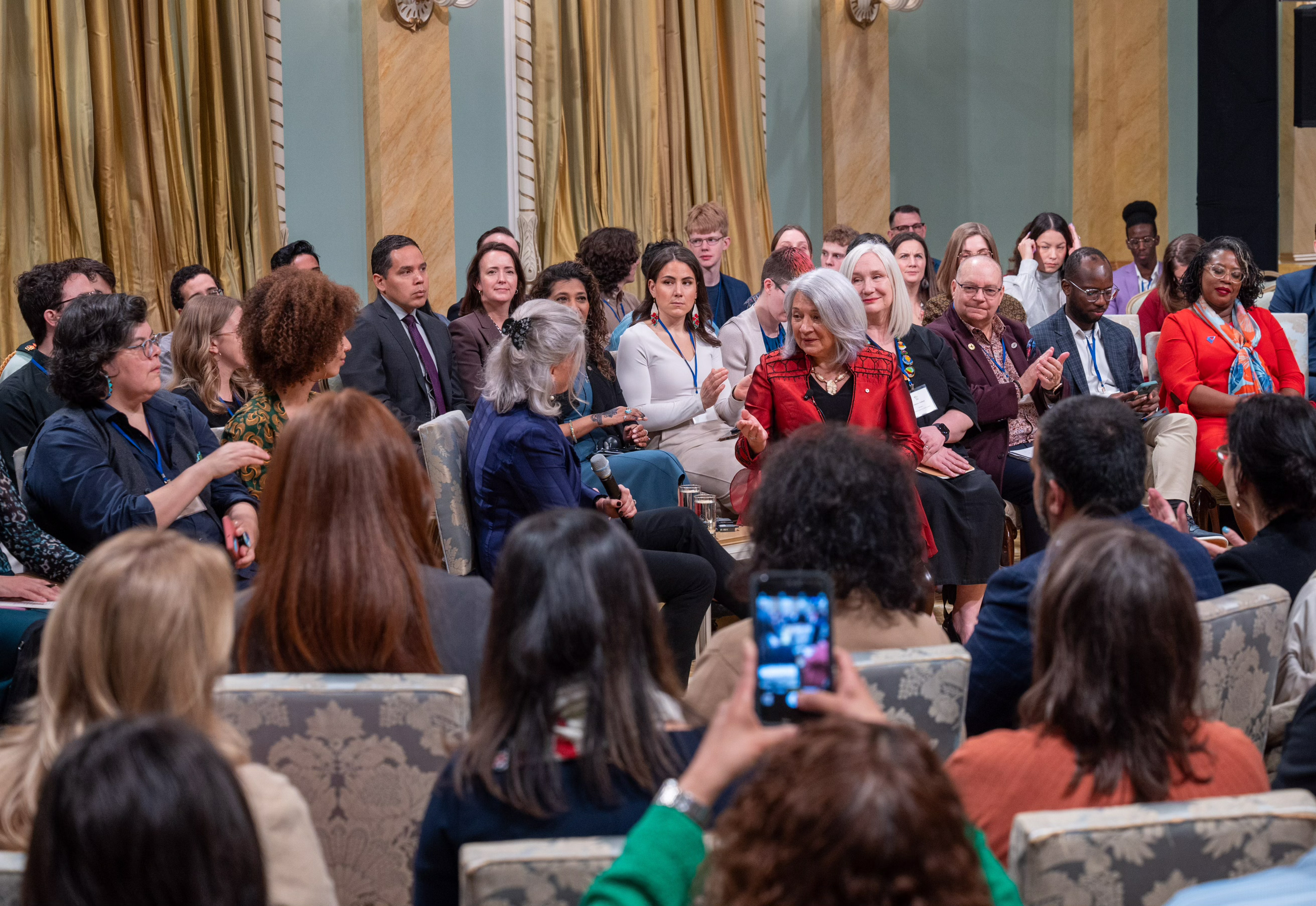On this page
- Building a Safe and Respectful Digital World
- Key statistics on online abuse and harassment
- Digital Respect Resources
- Footnotes
A priority of Governor General Mary Simon is to shine a spotlight on the issue of online abuse and harassment, raise awareness of its impacts and empower people to stand up against toxic online discourse.
Research shows that women leaders, racialized public figures, 2SLGBTQI+ individuals and young people are disproportionally affected by misogynistic, sexist and racist comments online. These attacks are not harmless. They silence voices, discourage participation in public discourse, and create a climate of fear and insecurity. In a world that is increasingly reliant on digital communication and information, everyone has a role to play in creating safer digital spaces.
In February 2023, the Office of the Secretary to the Governor General (OSGG) disabled all comments on the Governor General’s social media platforms due to an increase in abusive, misogynistic and racist engagement, including a greater number of violent threats. A few weeks later, on International Women’s Day, the Governor General hosted a round-table discussion with women ambassadors, public service leaders and journalists to shine a light on the rise of toxic online discourse.
The Governor General’s Symposium: Building a Safe and Respectful Digital World
Key statistics on online abuse and harassment
- According to the UN, 38% of women have personal experiences with online violence and most girls report their first experience of social media harassment takes place between the ages of 14-16. (1)
- According to 2024 research from Statistics Canada, young women and girls are more often the target of online bullying and abuse, especially of a sexualized nature. (2)
- Some in Canada experience more unwanted behaviour online, including 33% of young women between 15 and 24, 30% of Indigenous women, and 50% of all bisexual women. (3)
- 7 in 10 young people have been exposed to online hate. (4)
- A 2023 report found that cybervictimization is a well-known risk factor for adolescent mental health problems. (5)
- Frequent social media and Internet use can place younger people at a higher risk of experiencing or being incited to perpetrate online harms and cyberaggression. (6)

Digital Respect Resources
The following resources were suggested by expert participants from The Governor General’s Symposium: Building a Safe and Respectful Digital World as useful for those seeking more information on online abuse.
Related Research and Publications
1. Research from Toronto Metropolitan University: Survey of Online Harms in Canada (2023)
2. Canadian Women’s Foundation on Gendered Digital Hate, Harassment, and Violence
3. The University of Ottawa’s “eQuality Project” Resources
4. The ACCT Foundation Publications
7. Toronto Star article: I know the answer to protecting kids online and it’s not banning cellphones
Related Organizations
1. PREVNet: Promoting Relationships & Eliminating Violence Network
3. Jack.org
6. The Art Impact AI Coalition
Tools
1. Media Smarts: My Voice is Louder Than Hate
2. La Fondation des Gardiens virtuels: Les Travailleures de Rue Numériques
(Available in French only)
3. Samara Centre for Democracy: SAMbot
4. Consumer Reports: Security Planner tool
5. Facebook & Equal Voice: Safety Tips for Women Leaders
Footnotes
(1) Source: UN Women, “Accelerated Efforts to tackle Online Technology Facilitated Violence Against Women and Girls, 2023
(2) Source: 2024 Statistics Canada report: Online hate and aggression among young people in Canada
(3) Source: 2022 Women and Gender Equality Canada Campaign
(4) Source: Statistics Canada, Insights on Canadian Society, “Online harms faced by youth and young adults: The prevalence and nature of cybervictimization, and “Cybervictimization and mental health among Canadian youth
(5) Source: 2023 Statistics Canada report: Cybervictimization and mental health among Canadian youth
(6) Source: Statistics Canada, The Daily, Online hate and aggression among young people in Canada, 2024

